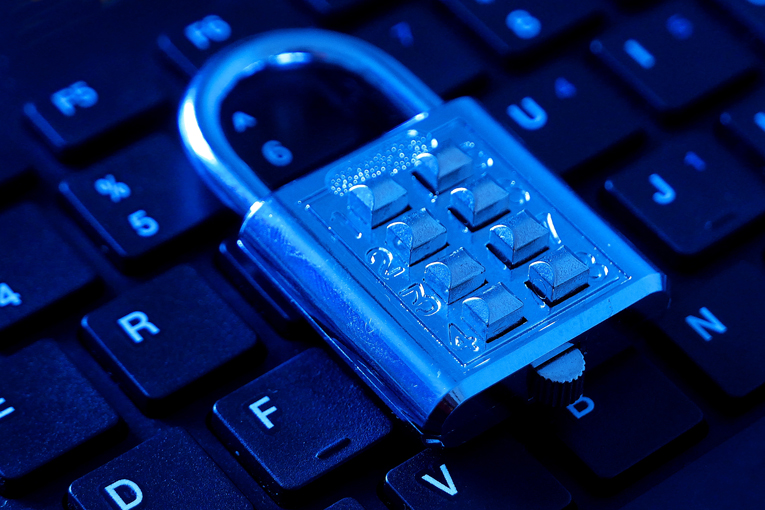Buying a house can be one of the most stressful things you can do; while juggling your usual life duties with your conveyancing solicitors, estate agents and buyers.
Add to this having to deal with mind-blowing amounts of money and navigating the complex and glacially slow-moving process of purchasing.
It can be one of the most traumatic and tense times in anyone’s life.

To add insult to possible injury, now home purchasers are falling victim to scams. Solicitors and conveyancers are warning house buyers of a growing number of hacking swindles. The results of which are leaving buyers out-of-pocket by tens of thousands of pounds.
Read on for all you need to know about the dangers of transferring money online and the cons you could be susceptible to when buying your forever home.
What is the scam?
There are several variations of the reported scam. However, it effectively involves the con-artists intercepting communication to swindle buyers into sending their money to fraudulent bank accounts.
These stings are generally aimed at first-time buyers as they are novices to the procedure. Also, those who are more accustomed to the process will likely be buying and selling simultaneously. Therefore, they tend not to see their deposit money.
However, it is essential to be mindful, whether you are a novice or an expert at house purchasing. Most people will only buy a house a few times in their lives, and it is effortless to get tricked.
In most cases, a hacker will monitor email exchanges between buyers, solicitors, and estate agents. Then, using this information, they will send a plausible email to the buyer claiming to be from one of the representatives.
The email will enclose bank details and a request to transfer money representing the house purchase deposit or something similar. The bank details will be for a real account but an account belonging to the thief.
Recent examples of attacks
Fraudsters are continually altering their tactics to try and stay ahead of the game. Nevertheless, some ploys have included:
- Criminals stealing headed paper before writing to clients asking them to send deposits and purchasing money to bogus bank accounts
- Setting up fake law firms and fraudulent websites posing as companies that do conveyancing
- Intercepting emails between solicitors/conveyancers and house buyers
- Employee ‘insider’ fraud
Cyber Crime
An increasing number of business and monetary transactions take place every day, often with billions of pounds being moved around electronically between bank accounts.
The internet for daily life is very commonplace, and most of us do not think twice about it. However, mortgage fraud occurs in 1 in every 300 transactions.
Cybercrime is becoming increasingly more sophisticated. The Solicitors Regulation Authority (SRA) encourage risk management strategies to be implemented by firms to safeguard processes, data, and client’s funds.
Top tips to avoid falling victim to purchasing fraud
Here are the top tips that are given by legal firms and conveyancers on how to guarantee financial protection when buying a house.
-
Communicate
Never send a large amount of money to your solicitor off the back of an email. Speak to your conveyancing solicitor first and confirm the details on a phone number you have used before, face to face or through a video conference call. Never use contact details given in an email alone; they could be fake.
- Better safe than sorry
Send a test amount before you consider handing over the big bucks. Maybe even try transferring £1, and then speaking to your solicitor to confirm receipt.
-
Concrete processes
As soon as you appoint your solicitor, make sure that you agree on a method for payment and confirm how the procedure will work. By doing this early on, you can be alert to any changes or alterations to your agreement. Get a hard copy of your solicitor’s bank details and look out for any red flags throughout the process.
-
Safety first
Before you employ the services of a conveyancer or solicitor, ask what systems and checks they have in place to prevent scams or cybercrime. This can include what detailed assessments they will be carrying out before transferring your hard-earned cash to the other party’s solicitors.
-
Red flags
Look out for critical concerns such as your solicitor changing their email address, bank details, sending emails enclosing hyperlinks or unusual attachments. Any correspondence featuring spelling mistakes or a static, low-budget website with only a mobile number as a point of contact should be a cause for concern.
Scam victims and casualties of cons
If you have been the victim of a swindle or a con, then you are not alone. The Crime Survey for England and Wales (CSEW) estimated that there were 3,863,000 fraud offences against adults in England and Wales in the year ending June 2019. The instances of monetary fraud are all-too-common.
These are often highly sophisticated scams aimed at unsuspecting or vulnerable people. It is easy to be embarrassed or too humiliated to ask for help or advice on what you can do about your position.
We recommend immediately seeking advice from a fraud solicitor. You can then check whether you are eligible to claim or seek compensation from your insurance provider or associated body.
Key Takeaway
Staying alert to any concerns and keeping educated on any current scams is essential for anyone who uses the internet for business or monetary transactions.
Purchasing a house will likely be an incredibly stressful time. It is easy to forego your usual checks and stringent nature. From the outset, ensure that you choose a reputable regulated conveyancing solicitor who will safeguard your interests and walk you through the process reliably and thoroughly.
Contact us today to find a dependable and professional property solicitor.
Read more: ‘I thought I’d bought my first home, but I lost £67,000 in a conveyancing scam’
Do you need a Lawyer?
Find Solicitors, Lawyers and Law Firms in the UK with Qredible
Find a Lawyer near me





